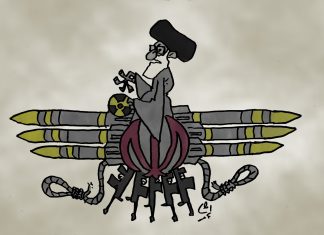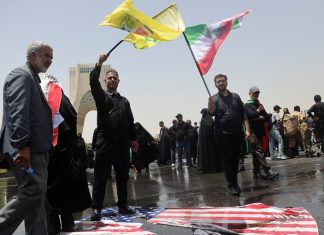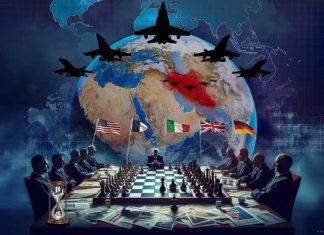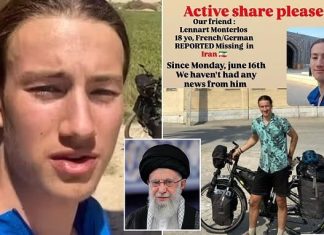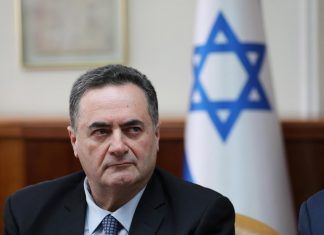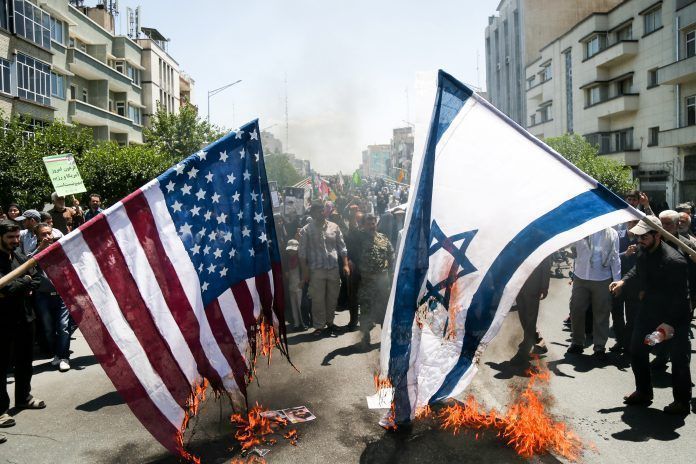
By Dan Williams and Stephen Farrell
JERUSALEM, April 14 (Reuters) – An attack on an Iranian nuclear plant that Iran blamed on Israel has drawn official silence from Israel’s prime minister, but he has repeated warnings that he will stop Tehran acquiring nuclear weapons capability.
Sunday’s explosions at Natanz came just after the resumption of U.S.-Iranian negotiations in Vienna.
The talks are the cornerstone of a regional push by U.S. President Joe Biden along a narrowing diplomatic tightrope and of efforts by global powers to revive a 2015 nuclear pact with Tehran that his predecessor Donald Trump pulled out of three years ago.
With those indirect discussions expected to resume in the coming days, Israeli premier Benjamin Netanyahu has urged far more stringent curbs on Iran.
“We must never remain indifferent to threats of war and annihilation from those who want to destroy us,” Netanyahu said on Wednesday at the annual memorial day ceremony when Israel honors its soldiers and civilians killed in the conflict.
“If we had pre-empted the danger we faced in 1973, it is very possible we would have been spared a multitude of dead and wounded,” he said about Israel having been caught off-guard by Egyptian and Syrian attacks that began the 1973 Middle East war.
In an even more direct warning to Iran on Monday while standing alongside visiting U.S. Defense Secretary Lloyd Austin, the Israeli leader said: “I will never allow Iran to obtain the nuclear capability to carry out its genocidal goal of eliminating Israel.”
But rather than voice umbrage at a strike that could jeopardise its diplomatic track, the Biden administration has publicly distanced itself from what Israeli media organisations have described as an act of sabotage by Mossad.
Washington denied that it was involved “in any manner” in the attack and Austin made no mention of it in Jerusalem on Monday, instead reaffirming the U.S. commitment to Israel and the need to address “shared challenges” in the region.
The Vienna talks are expected to continue next week – but Iran has said it will respond to the Natanz strike by increasing uranium enrichment to 60% purity.
[aesop_image img=”https://kayhanlife.com/wp-content/uploads/2021/04/2021-04-12T124706Z_117973718_RC2CUM91EJ53_RTRMADP_3_ISRAEL-USA-NETANYAHU-AUSTIN-scaled.jpg” panorama=”off” credit=”U.S. Defence Secretary Lloyd Austin and Israeli Prime Minister Benjamin Netanyahu give a statement after their meeting in Jerusalem on April 12, 2021. Menahem Kahana/Pool via REUTERS” align=”center” lightbox=”on” captionsrc=”custom” captionposition=”left” revealfx=”off” overlay_revealfx=”off”]
TOUGHER CONDITIONS?
The deal at the heart of the talks is the 2015 Joint Comprehensive Plan of Action, under which Iran agreed to limit or eliminate its enriched uranium sources in return for relief from international sanctions.
Biden wants to rejoin, provided that Iran returns to compliance with it.
But Israel wants far more conditions added, including the scrapping of “sunset clauses” that would allow Iran to resume some nuclear projects in the future, more extensive United Nations inspections and a credible U.S. military threat should Iran renege.
“One of the problems with the agreement is that it left Iran with a nuclear infrastructure in place which allows it – at a point of its choosing – to move ahead relatively rapidly,” a senior Israeli official told Reuters on Wednesday.
The official cited as one example the U.N. atomic watchdog’s finding in February that Iran had produced uranium metal, which can be used to make the core of an atom bomb.
“A lot of the JCPOA puts the infrastructure in the freezer or in mothballs,” the Israeli official said.
“…We believe Iran should be denied the infrastructure.”
On Wednesday Saudi Arabia echoed Israel’s concerns by urging a deal “with stronger parameters of a longer duration”.
Iran says it has never sought to obtain or develop nuclear weapons, and that it seeks nuclear technology for civilian purposes.
Natanz has been hit at least once before by cyber-sabotage, in 2010. Amos Yadlin, Israel’s military intelligence director at the time, said such attacks primarily serve to dent Iran‘s nuclear programme.
But Yadlin, who now runs Tel Aviv University’s Institute for National Security Studies, saw potential secondary goals this time.
“If this was indeed an Israeli operation, it may be meant to signal disapproval of the resumption of negotiations in Vienna, while easing conditions there for the Americans by removing a source of Iranian leverage,” he said.
(Additional reporting by Jeffrey Heller)


